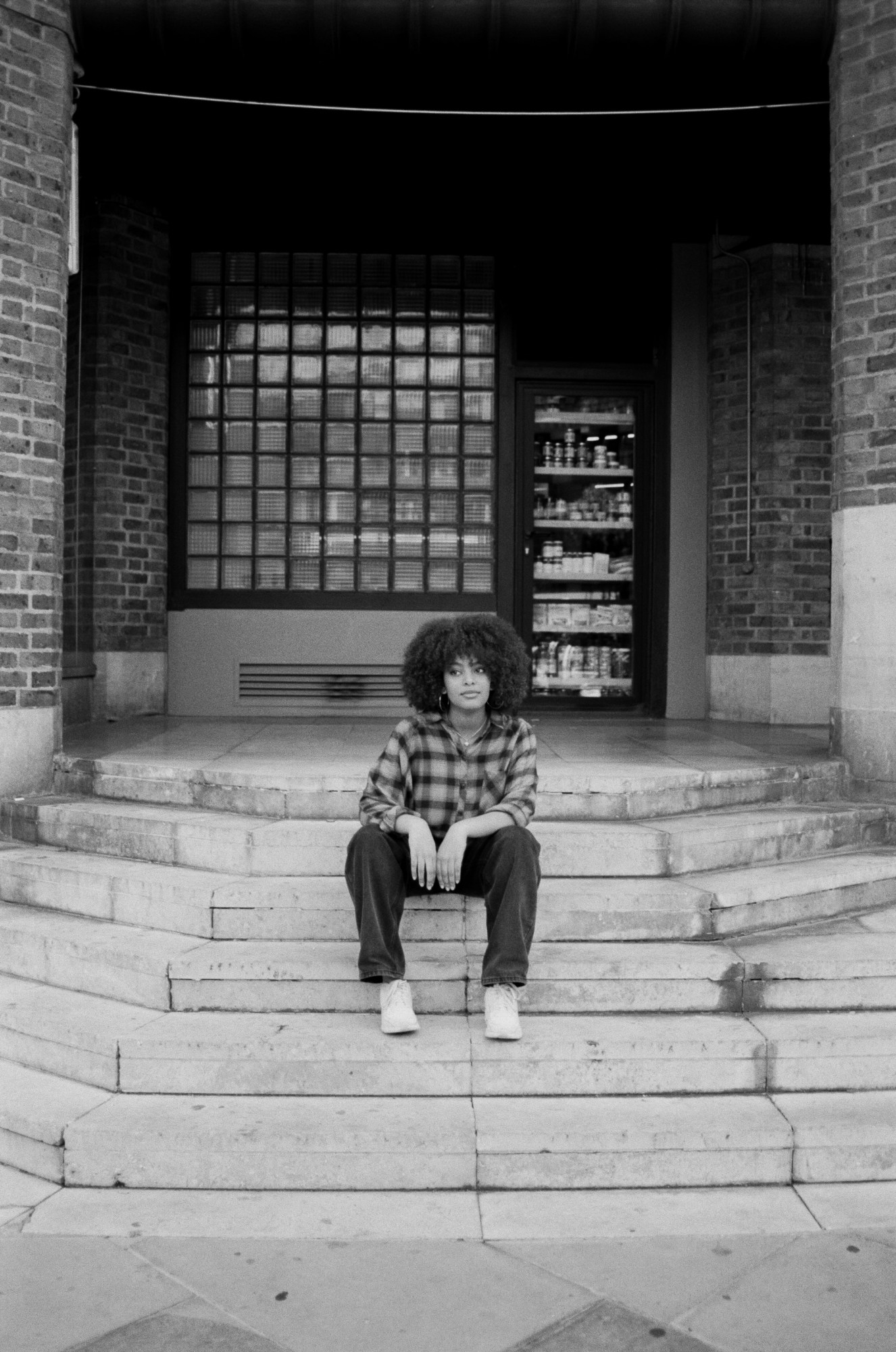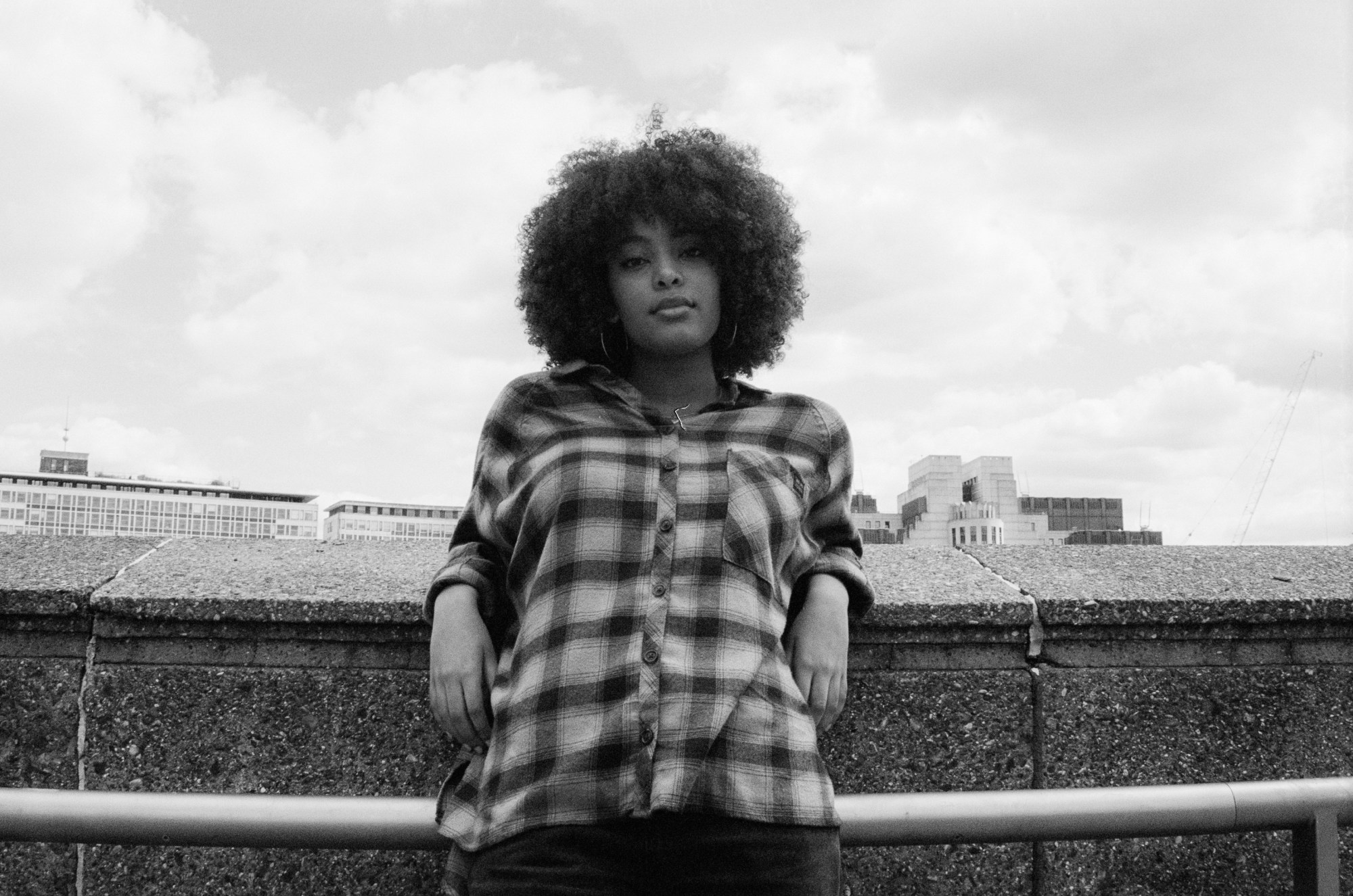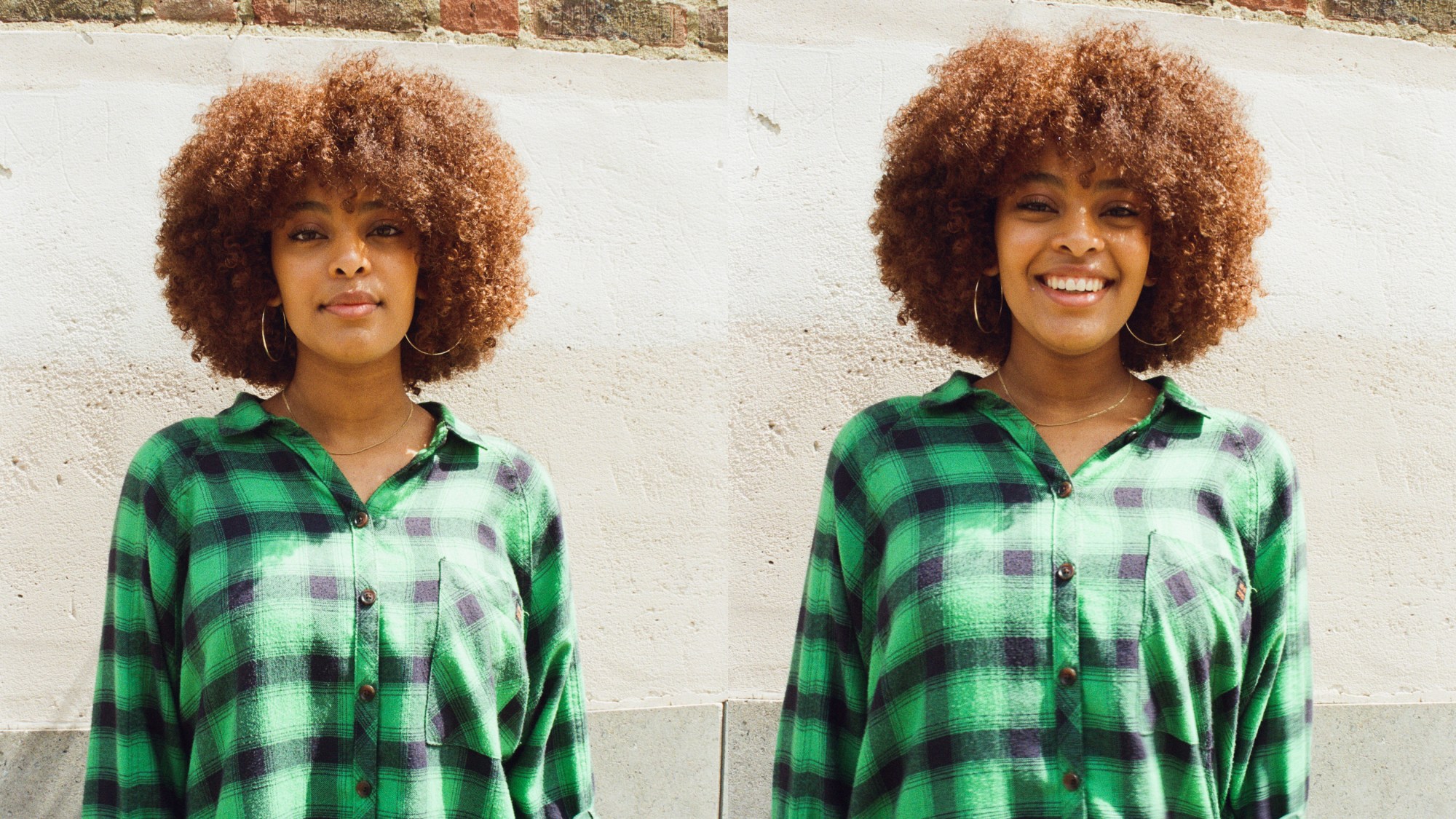Last year, Marcus Rashford ascended from rising football star to the defiant face of the free school meals movement. On June 15, the Manchester United player wrote an open letter to Boris Johnson challenging the government’s deprivation of free school meals to 1.2 million children and the next day the conservative party U-turned on its decision. But long before Marcus signed his name to this campaign and brought the issue to wider attention Christina Adane, a 17-year-old Black girl from south London, was championing the fight against the injustice within the UK food system.
As a youth board co-chair of Bite Back 2030, an organisation aiming to empower young people and end child food poverty, Christina has been working tirelessly to create meaningful change in food equity. Last year her activism even found her included in the BBC’s 2020 list of 100 inspiring and influential women. As we speak on Zoom, the energy and enthusiasm behind her work are immediately evident. Christina tells me that she, too, was on free school meals, just like Marcus. But, growing up in south London, she wasn’t conscious of how scarce basic nutritious food was to her. “I did not realise that I lived in a food desert.” It wasn’t until Christina’s parents enrolled her at The Grey Coat Hospital, an academy school in Westminster, and she was exposed to lives of immense privilege, that she experienced “how the other side lives”.
But her devotion, commitment and knowledge of inequality can be directly traced back to her parents, who laid out the groundwork for her to become the inspiring young woman she is today. “I learned from them to have a world view and to always be curious and inquisitive,” she says. Watching Al-Jazeera in the evenings, particularly, meant she engaged in thoughtful debate with her dad. But it was seeing the outbreak of Ebola in West Africa, which took 11,323 lives between 2014 and 2015, that Christina felt the seeds of revolutionary thinking sprouting within her. “My mom was crying in the living room,” she says. “It was the morning of a school day, and I went to her and asked her what was wrong, and she pointed to the TV. That was when I first realised, ‘Woah, this is the world we live in’.” Coming from Tigray, Ethiopia, the struggles of her motherland also fuel Christina’s desire for radical change, particularly the dishonest diplomatic ties Ethiopia has maintained with Britain.

Growing up in Britain, Christina failed to see her identity represented in the feminist movements around her, “I struggled with calling myself a feminist,” she says, noting that all she saw was white feminism. It wasn’t until she uncovered a more critical approach, which questioned the role of gender, race and class discrimination as a whole — through the teachings of Black feminists like Kimberlé Crenshaw — that Christina found a home for her lived experience. “Realising that I am Black, and I am a woman,” she says, enabled her to create a space for herself and ensure all marginalised Black women are heard. “I know when it’s time for me to speak up, but I also know when it’s time to let another woman speak and tell her truth.”
Christina is talking to us from her bedroom, backed by a colourful collage of Black revolutionary figures on her blue painted walls. When asked about it, she describes how “these figures influenced my kind of politics and morals.” She emphasises how the Ten-Point Program — a set of guidelines that the Black Panther Party followed — underpins how she conducts her activism. She understands deeply how the fight for equality is a collective one. The anti-apartheid movement in South Africa, for example, is a joint movement she holds dear to her heart. “It was a faceless movement that wasn’t just one leader”, she says. “It was a whole community of people across the world.” Stirring a collective vision of organisation, “they never placed individuals first, and I love that about the anti-apartheid movement.”
This gave her the groundwork to launch her petition for free school meals last year. “When I started the campaign, it was the eighth week of lockdown,” she says. “The Bite Back 2030 team and I [wanted] to provide basic food provision to young people, [and] to show young people that they have the tools at their disposal to make a difference.” When the government announced it would not be extending its free school meal vouchers over the Easter holidays, Christina felt incensed. “I felt pure anger and rage, and I wanted to do something about it, but I wasn’t able to go out and do the things I would usually do in activism.”

After Marcus Rashford brought awareness to the movement, Christina felt a sense of triumph. “It felt amazing,” she says. “We reached more kids, allowing us to extend the campaign to make it about food poverty instead of just free school meals,” she says. Despite Marcus’ nationwide influence, Christina’s campaign was rooted in the grassroots activism of her team, “he wasn’t the deciding factor through the whole campaign. The first government U-turn was due to our campaign with over 200,000 signatures at the time,” she says. And, while it created awareness across the country, the campaign was also making strides on a local level. “We started cooking interviews with my local communities, and we made boxes where children will take away packs of food during lockdown.”
Christina’s activism hasn’t come without its commitments. As she puts it, it can often feel like “everyone else is living their life, but I’m in meetings all day”. In spite of her campaigning success, she still finds it challenging juggling her activism and school, “it’s difficult and hard to balance”. But her passion for the movement keeps her going and, despite her missing out on moments of her youth, she’s fighting to see a new version of the world, where people like her experience liberation and peace. At 17, she knows her young age is a weapon, too. “I think youth is my power, and being so young, that’s what shocks people and gets people to listen.”
Christina pledges not to stop here. Her plan is to centre younger working-class people in conversations so that they can campaign for their truth. “I’m trying to connect young people with leaders in positions of power and ensure that our voices are heard.” She also wants to guarantee that essential resources are available to all, “water insecurity is massive for me, and the more I learn about it, the more I want to just, you know, transform the system,” she says. “I have big dreams.”
Credits
Photography Skye Evelyn
Emmanuel Onapa is a freelance writer and works with The4frontproject and Hackney Account.


